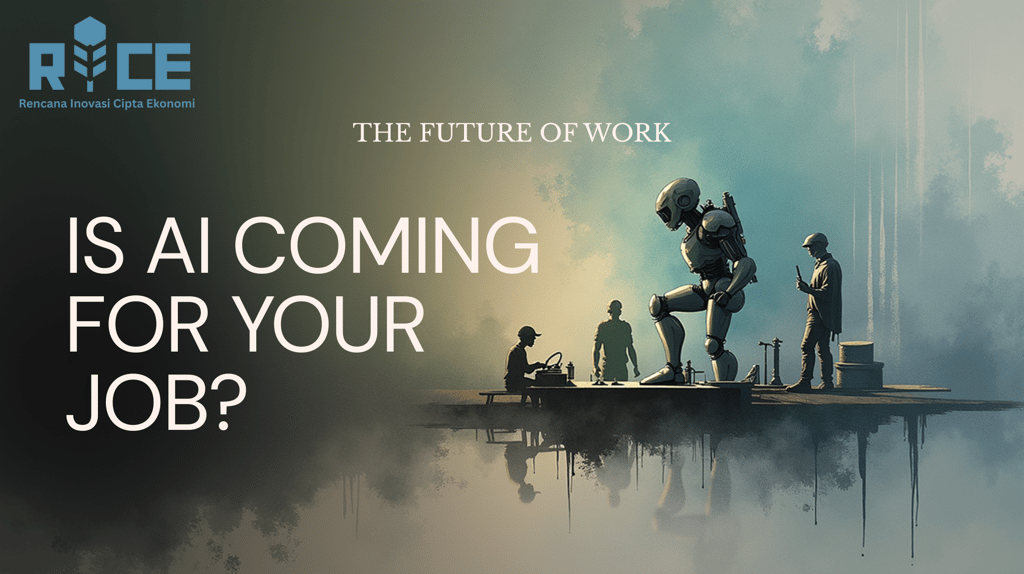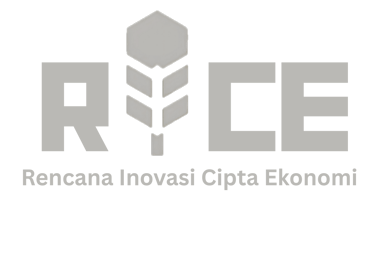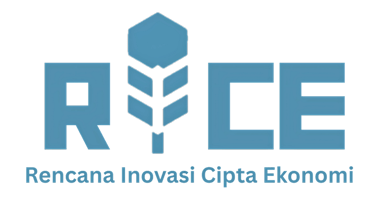Is AI Coming for Your Job? What the Next Decade of Automation Means for Workers
Explore how AI will transform, not simply replace, jobs in the next decade.
TECHNOLOGY
Rice AI (Ratna)
9/9/20256 min read


The question echoes in boardrooms, cafes, and across social media feeds: "Is AI coming for my job?" It’s a natural concern, especially as headlines frequently highlight breakthroughs in artificial intelligence, from complex data analysis to creative content generation. The rapid advancement of AI often brings with it a sense of apprehension – a fear that the machines are not just coming, but are already here, ready to automate our roles into obsolescence.
But what if we shifted our perspective? What if instead of viewing AI as an existential threat, we saw it as a powerful co-pilot, an unparalleled tool poised to unlock unprecedented levels of human potential and creativity? The next decade of automation isn't about wholesale job replacement; it's about profound transformation, demanding a new set of skills, a different way of working, and a renewed focus on what makes us uniquely human. This isn't just a challenge; it's an exhilarating opportunity to reshape our careers, our businesses, and our future. Join us as we explore the landscape of AI's impact on the workforce, identify the skills that will thrive, and outline a proactive strategy for not just surviving, but truly flourishing in the age of intelligent automation.
The AI Revolution: Understanding the Landscape
We are in the midst of a technological revolution, propelled by artificial intelligence. From sophisticated machine learning algorithms that predict consumer behavior to generative AI that drafts emails, designs images, and even composes music, AI is no longer a futuristic concept but a present-day reality integrated into countless aspects of our daily lives and professional endeavors. This rapid evolution means that AI is not a static entity; it’s a dynamic force continually learning, adapting, and expanding its capabilities.
Its impact is already palpable across industries. In manufacturing, AI-powered robots are handling repetitive, high-precision tasks, improving efficiency and safety. In healthcare, AI assists in diagnosing diseases, developing new drugs, and personalizing treatment plans. In finance, algorithms detect fraud and optimize investment strategies. For small business owners, AI-driven tools are revolutionizing customer service through chatbots, streamlining marketing campaigns, and providing data analytics insights that were once only accessible to large corporations. The common thread here is augmentation: AI is excelling at tasks that are routine, data-intensive, or require rapid processing, freeing up human workers to focus on more complex, creative, and strategically valuable activities. This isn't about AI replacing humans entirely, but rather about AI reshaping the nature of work, making it more efficient and allowing for higher-level contributions.
Jobs at Risk vs. Jobs Transformed: A Nuanced View
The fear of job displacement by AI is legitimate, particularly for roles heavily reliant on repetitive, predictable tasks. Data entry specialists, routine administrative assistants, assembly line workers, and even some basic customer service roles are among those most susceptible to automation. Studies by institutions like McKinsey & Company have indicated that a significant percentage of current work activities could technically be automated. However, a crucial distinction must be made: the automation of tasks is not the same as the elimination of jobs.
Consider the rise of spreadsheets. They automated countless manual calculations, but they didn't eliminate accountants; they transformed the role, empowering accountants to perform more complex analysis and strategic planning. Similarly, AI will likely redefine many existing professions rather than eradicate them. Customer service representatives might pivot from answering basic FAQs (handled by chatbots) to resolving complex issues requiring empathy and critical thinking. Marketing professionals will use AI to generate initial content drafts, then refine and personalize them with a human touch, focusing on brand storytelling and emotional connection. The future workforce will increasingly feature "hybrid roles," where humans and AI collaborate seamlessly. Humans will set the strategy, interpret complex data, and manage relationships, while AI handles the heavy lifting of data processing, pattern recognition, and routine execution. This symbiosis will unlock new levels of productivity and innovation, creating entirely new job categories we can barely imagine today.
The Human Edge: Skills That AI Can't Replicate (Yet)
While AI can process vast amounts of data, recognize patterns, and execute tasks with incredible speed, there remain core human competencies that are incredibly difficult, if not impossible, for machines to replicate. These are the skills that will become even more indispensable in an AI-augmented world, forming the bedrock of a future-proof career.
Firstly, creativity and innovation are paramount. While generative AI can produce content, it lacks true originality, contextual understanding, and the ability to challenge existing paradigms. Humans conceive novel ideas, design groundbreaking solutions, and drive artistic expression. Secondly, critical thinking and complex problem-solving remain uniquely human. AI excels at finding answers within defined parameters, but humans are adept at defining the right questions, navigating ambiguity, and applying ethical judgment to multifaceted challenges. Thirdly, emotional intelligence and interpersonal communication are irreplaceable. Building rapport, demonstrating empathy, motivating teams, negotiating effectively, and understanding nuanced human emotions are critical for leadership, sales, education, and any role requiring deep human connection. AI can process sentiment, but it cannot genuinely feel or inspire. Finally, ethical reasoning and decision-making are fundamentally human. As AI systems become more powerful, the need for human oversight to ensure fairness, accountability, and alignment with societal values becomes crucial. Professionals who can analyze the ethical implications of AI applications will be highly valued. Platforms like Rice AI are dedicated to helping individuals and businesses not just understand these shifts, but actively cultivate these essential human skills. By providing resources and insights into the ethical frameworks and human-centric applications of AI, Rice AI empowers you to leverage technology responsibly and strategically, ensuring that your unique human capabilities remain at the forefront of your professional journey.
Future-Proofing Your Career: A Proactive Approach
Navigating the AI revolution requires a proactive, strategic mindset. This isn't a passive process; it's an active investment in your future. Here's a "how-to" guide for workers and small business owners alike to future-proof their careers and organizations:
1. Embrace Lifelong Learning and Reskilling: The most critical strategy is continuous learning. Don't wait for your job to be impacted; actively seek out new knowledge and skills. Focus on areas that complement AI, such as data science, prompt engineering, cybersecurity, or user experience design. Look for courses, certifications, and workshops that keep you abreast of technological advancements.
2. Develop AI Literacy: You don't need to be an AI programmer, but understanding how AI works, its capabilities, and its limitations is crucial. Learn to use AI tools effectively to augment your productivity. Experiment with AI-powered software in your field. For small business owners, this means exploring how AI can automate tasks like scheduling, marketing analysis, or inventory management, freeing up valuable time and resources. Rice AI offers accessible guides and tools designed to demystify AI, making it easier for individuals and small businesses to integrate intelligent technologies into their operations without needing deep technical expertise.
3. Hone Uniquely Human Skills: Double down on the skills AI struggles with: creativity, critical thinking, emotional intelligence, collaboration, and adaptability. These are the "power skills" that will differentiate you and allow you to lead, innovate, and connect in a world increasingly powered by machines.
4. Look for Hybrid Opportunities: Instead of fearing displacement, seek out ways to integrate AI into your current role or business model. How can AI take over mundane tasks, allowing you to focus on strategic initiatives, complex client relations, or creative projects? Could AI help you personalize customer experiences, analyze market trends more effectively, or optimize your supply chain?
5. Cultivate a Growth Mindset: The pace of change will only accelerate. A willingness to adapt, learn from failures, and view challenges as opportunities for growth will be your greatest asset. Network with peers, attend industry events, and stay curious about emerging technologies.
6. For Small Business Owners: Innovate and Create: See AI as a catalyst for new services, products, and even entirely new business models. Can AI help you reach new customer segments, offer hyper-personalized solutions, or create entirely novel value propositions? By strategically adopting AI, you can not only streamline operations but also create new, high-value roles within your organization that leverage both human ingenuity and AI efficiency.
The narrative of AI replacing human workers is often oversimplified and fear-driven. The reality is far more nuanced and, indeed, inspiring. We are not on the precipice of a jobless future, but rather at the dawn of a transformed working world – one where human creativity, empathy, and strategic thinking are amplified by the immense power of artificial intelligence.
The next decade will not be defined by humans against machines, but by humans with machines. It's a future where repetitive tasks are offloaded to algorithms, freeing us to engage in more meaningful, impactful, and uniquely human endeavors. This shift demands proactive engagement: embracing continuous learning, developing AI literacy, and doubling down on our innate human strengths. It's an invitation to reinvent, to adapt, and to collaborate with technology in ways that unlock unprecedented levels of productivity, innovation, and personal fulfillment. Don't let fear paralyze you; let the potential of AI inspire you. The future isn't happening to us; it's being built by us, and with the right approach, we can shape it into a future brimming with opportunity and growth. At Rice AI, our mission is to empower individuals and businesses to not just cope with, but to truly lead and thrive in this exciting new era of intelligent technology.
References
Frey, C. B., & Osborne, M. A. (2017). The future of employment: How susceptible are jobs to computerisation? Technological Forecasting and Social Change, 114, 254-280. https://doi.org/10.1016/j.techfore.2016.08.019
McKinsey & Company. (2023, June 28). Generative AI and the future of work in America: A new AI-driven jobs report. https://www.mckinsey.com/capabilities/quantumblack/our-insights/generative-ai-and-the-future-of-work-in-america-a-new-ai-driven-jobs-report
PwC. (2022). AI Predictions 2023: Reinventing business in the age of AI. https://www.pwc.com/gx/en/issues/ai-predictions-2023.html
World Economic Forum. (2023). Future of Jobs Report 2023. https://www.weforum.org/publications/future-of-jobs-report-2023/
#AIFuture #FutureOfWork #AIandJobs #Automation #Reskilling #Upskilling #CareerGrowth #Innovation #HumanSkills #TechTrends #SmallBusinessAI #DigitalTransformation #WorkforceDevelopment #AIforGood #FutureProofYourCareer #DailyAITechnology
RICE AI Consulting
To be the most trusted partner in digital transformation and AI innovation, helping organizations grow sustainably and create a better future.
Connect with us
Email: consultant@riceai.net
+62 822-2154-2090 (Marketing)
© 2025. All rights reserved.


+62 851-1748-1134 (Office)
IG: @rice.aiconsulting
